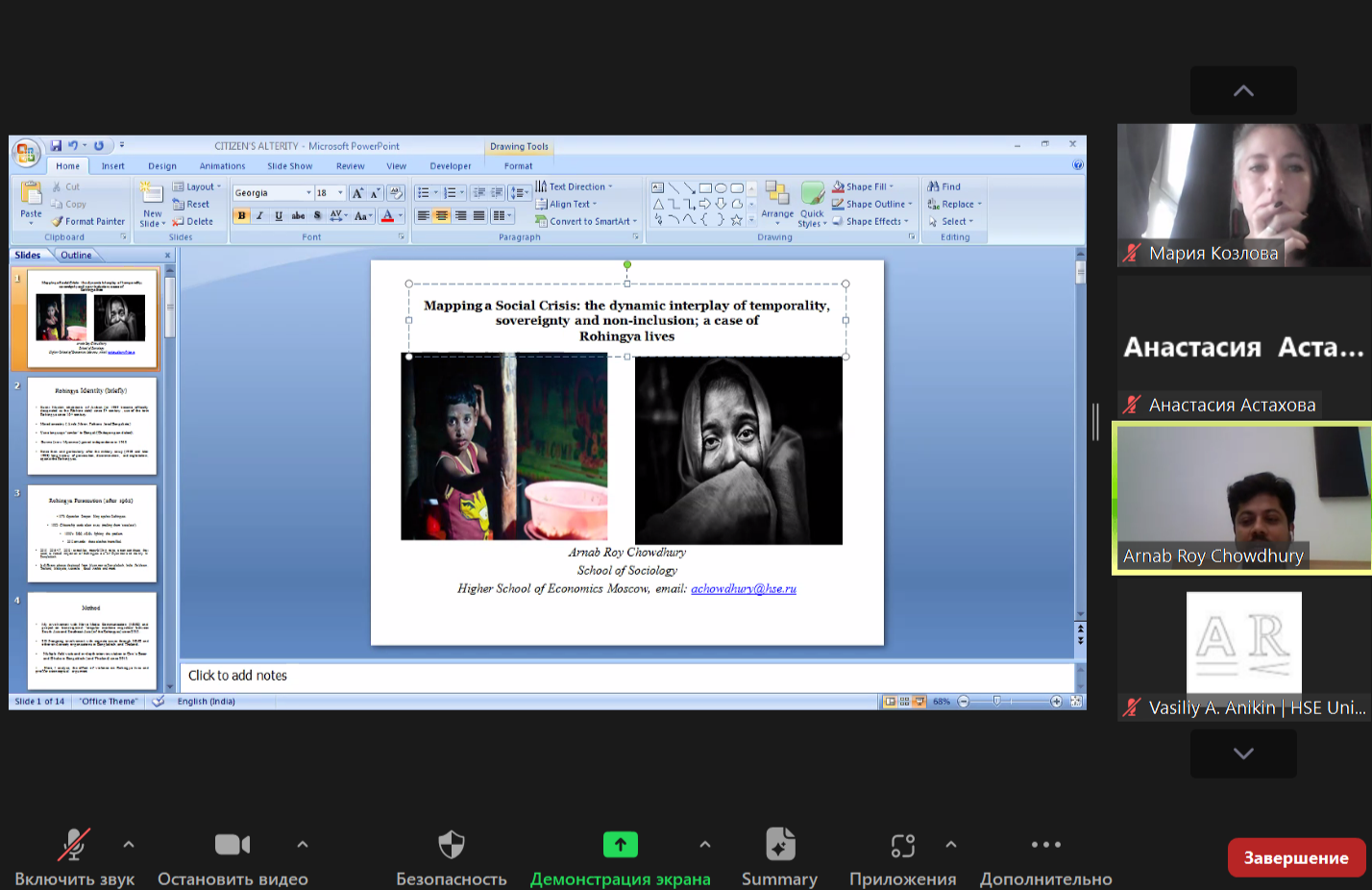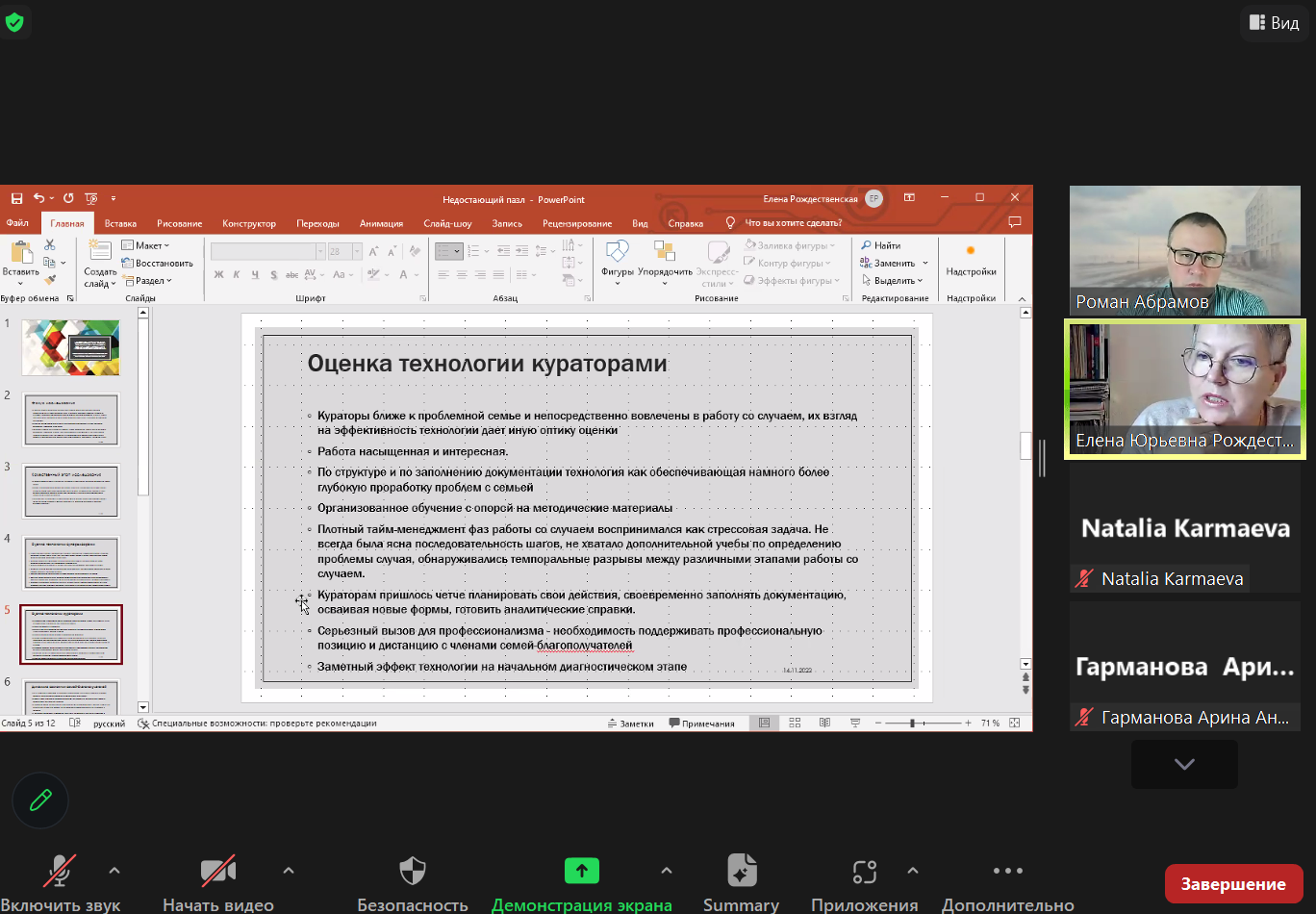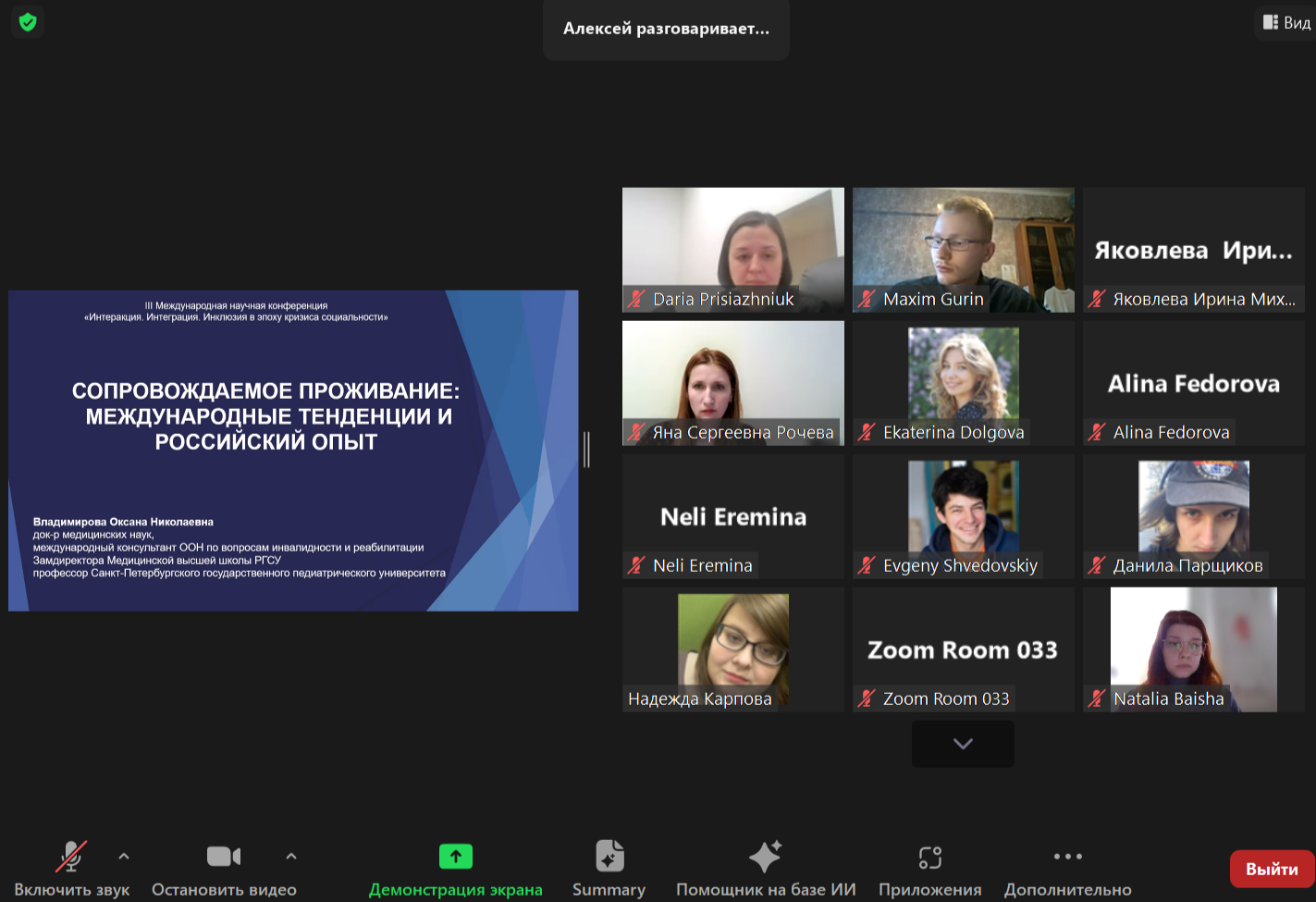More than 100 specialists participated in the III International Research Conference "Interaction. Integration. Inclusion in the era of sociality crisis" of the International Laboratory of Social Integration Research
From November 13-15, 2023, in a distance format, International Laboratory for Social Integration Research, HSE University in partnership with The Journal of Social Policy Studies, held the III International Research Conference "Interaction. Integration. Inclusion in the era of sociality crisis".
.jpg)
Participants from Belarus, Kazakhstan, Kyrgyzstan, Azerbaijan, Nigeria and Russia joined together at the III International Research Conference "Interaction. Integration. Inclusion in the era of sociality crisis" over the problems of social integration and inclusion in the modern world. The plenary session, 2 round tables and 16 sections were held in a remote format. They were attended by more than 100 specialists: researchers, representatives of international organizations (including the United Nations), business, consulting, NPOs.

At the plenary session, Iarskaia-Smirnova E., Head of IL SIR. reminded about the main focus of the Lab's work - the realization of the university's "third mission", i.e., obligations to society. "The focus of our interdisciplinary and very young team <...> is on finding ways to reduce inequality in society, advocating for social justice, identifying problem areas and growth points of inclusive social policy and practice" - said Elena Iarskaia-Smirnova. The diversity of topics of speeches and discussions at the conference showed how multifaceted this area of research and activity is.
Within the framework of separate events, reports were made by the IL SIR staff and colleagues from the National Research University Higher School of Economics, the Data Analysis Laboratory of the Public Opinion Foundation, the Institute of Sociology of the Federal Research Center of the Russian Academy of Sciences, the Institute of Ethnology and Anthropology of the Russian Academy of Sciences, the Institute of Oriental Studies of the Russian Academy of Sciences, NI Tomsk State University, Moscow State Pedagogical University, University of Nigeria, Moscow Institute of Economics, ITMO University, ADA University, Maxim Tank Belarusian State Pedagogical University, National Scientific and Practical Center for the Development of Special and Inclusive Education.
This year's unifying framework was the search for opportunities and limitations of social inclusion in different contexts, taking into account high uncertainty, crisis of social trust and limited resources. The range of topics and focuses covered by the conference participants was very wide: from challenges and dilemmas of museum inclusion to friendly school environment, from strategies of delayed aging to approaches to supported employment.

The impact of the III International Scientific Conference "Integration. Integration. Inclusion in the epoch of the crisis of sociality" went far beyond purely academic research and entered the public zone.
Of the 16 sections into which the reports were divided, three - "Technologies and quality of life of people with disabilities in the era of digitalization", "Employment of people with disabilities" and "Life of people with mental disabilities" - were focused on the problems of people with special needs; the sections "Emotional work in professional care in (post)pandemic societies" and "(Non)production of indifference in the provision of public goods" focused on the work of helping professionals and the experiences of people facing marginalized communities; the section "Health-saving, self-preserving and risk-taking behavior in different social, territorial and ethnic groups" included presentations on the reasons that motivate people to take care of their health or neglect it; two sections were devoted to school and adulthood as a special stage of life that is often overlooked by researchers.
The school theme was also addressed at the Round Table with international participation "Policies and practices of inclusion in school and out-of-school education in the countries of the former USSR". The second Round Table was devoted to the work of museums with the public, and representatives of not only academic but also professional museum community gathered to discuss the topic.
Other sections included a variety of papers on the culture of inclusion in general and its refractions in different spheres, from professional to universal, as well as methodological challenges and insights of social research.
The impact of the III International Research Conference "Interaction. Integration. Inclusion in the era of sociality crisis" goes far beyond purely academic research and enters the public zone.



